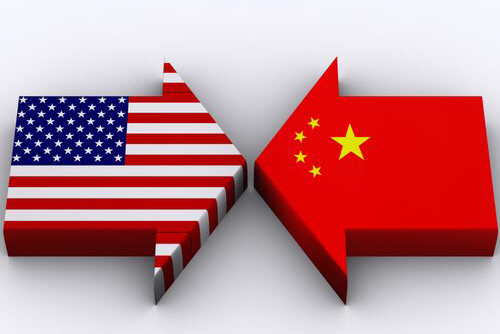
One of President Trump’s most popular slogans has been “America First.” With that objective in mind and after one year of the new Trump administration, the US has pulled out of the Trans Pacific Partnership Trade Agreement (TPP) and the International Climate Agreement, has begun renegotiation of, and threatened to withdraw from, the North American Free Trade area, has questioned the usefulness of both the United Nations and the NATO security treaty, suggesting in both cases that other countries must contribute more, and has prevented appointments to the appellate board of the WTO which could seriously undermine the effectiveness of the WTO dispute process.
Although these actions appear to demonstrate America’s assertiveness in international relations, they also seem to demonstrate a lack of awareness of a well-known strategic dilemma that every social science student will study at one point or another.
That dilemma, known as a “prisoner’s dilemma,” has been used to analyze a wide variety of strategic interactions including countries choosing how protective a trade policy to have, producers with few competitors deciding about pricing strategies, governments determining how many nuclear weapons to hold, and, in one of its earliest applications, prisoners deciding whether to confess to a crime.
The central assumption in such a game is that there are several agents whose sole objective is to do what’s best for oneself. That objective could be the maximization of profit, or the enhancement of national security, or even securing one’s release from prison. However, in each case, one’s own success is dependent in some way on what the other game players do.
One country’s success in protecting trade depends on whether other countries protect their trade as well. Raising the selling price of a good to raise profit will be undermined if competitors do not follow suit. How many nuclear weapons to have depends on how many warheads in other countries are pointed at you. And whether to confess to a crime depends on whether your partner in crime will confess when interrogated.
Positive or negative outcomes in these games depend on whether the game participants cooperate or not. When the agents are not cooperative their own instinct to do best for themselves is thwarted by similar behavior by one’s competitors, in which case, all sides suffer losses. This is called a Nash equilibrium.
A better outcome is available for every player in these games, but only through cooperation. Cooperation solves the dilemma wherein the untempered pursuit of individual self-interest leads to inferior results for everyone.
When countries cooperate with each other to reduce trade barriers simultaneously, all countries benefit. When firms collude to fix higher prices, all firms benefit. When governments implement a nuclear weapons agreement, all countries benefit by reducing the costs of an expensive arms race. And when prisoner’s cooperate with each other, they would both agree to deny their involvement and be set free for lack of evidence.
Sustaining a cooperative agreement can be difficult and costly. Once implemented each game player has an incentive to cheat, especially if cheating can go undetected. Countries have cheated in trade agreements by using creative non-tariff barriers (such as internal subsidies). Firms cheat in cartels by lowering their prices to some customers in secret to secure greater sales volumes. Governments might hide the production of new nuclear weapons, while prisoner’s interrogated in isolation might decide to confess to get a lighter sentence for oneself. Nevertheless, cooperative agreements are often worth the cost because they help to secure a better outcome for all.
President Trump’s international actions in the past year can all be interpreted as movements away from cooperative equilibriums which potentially could devolve into prisoner’s dilemma outcomes.
The author is Professor of Economics and International Affairs from George Washington University.


